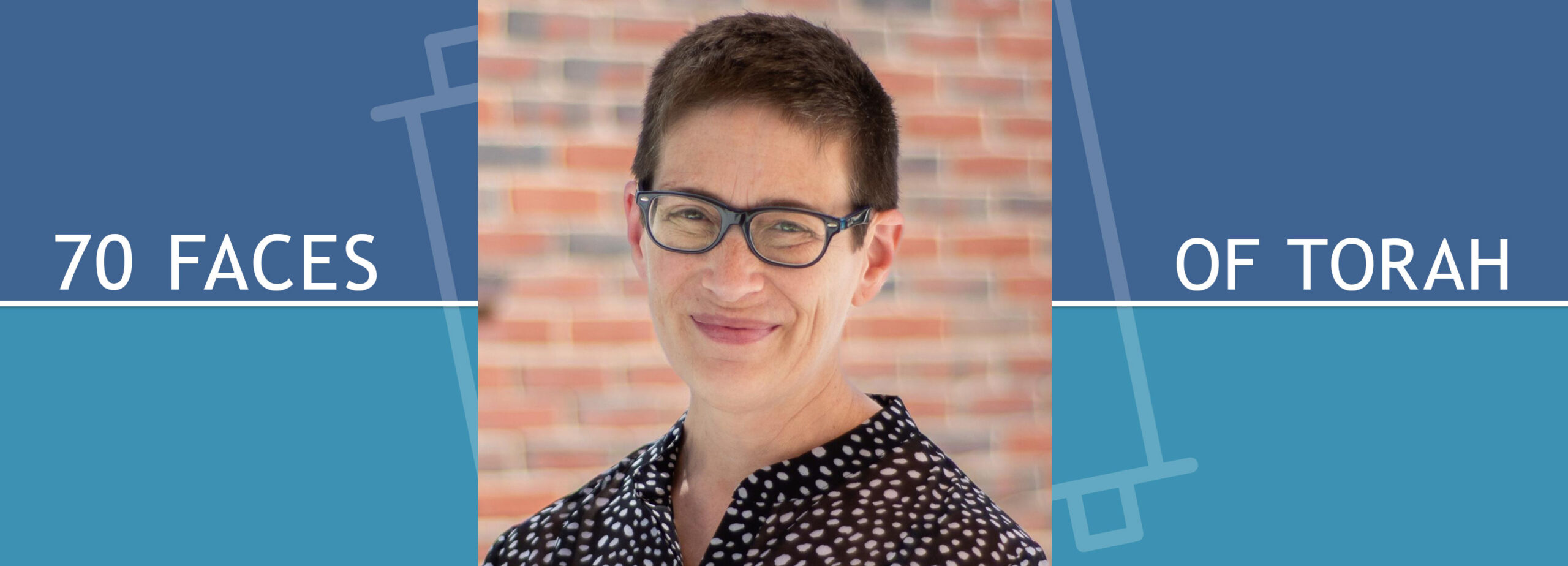Jewish learning And You Shall Bless

Parashat Eikev (Deuteronomy 7:12-11:25)
I suppose it was bound to happen. More than three years into the pandemic, I tested positive for Covid-19 for the first time last Friday. I feel ok, a little droopy, a sicker version of myself. Having little energy, I am finding myself looking out the window a lot. It’s a good pastime when you can’t muster the zest for much else.
I’m incredibly fortunate: what I see out my window is gorgeous. Heart-tuggingly gorgeous. Summer sun sparking on green leaves; sudden rain soaking the branches; birds; bunnies; sky.
This world is full to bursting with life and vigor and beauty. It is also fragile, ailing, wan. It depends a great deal which windows you are looking out.
The month in which I write this essay (July 2023) is considered by climate scientists to have been the hottest month in 120,000 years. Unforeseen storms have caused flooding, landslides, and other havoc as far as South Korea, Afghanistan, and the Philippines and as near as Vermont, Philadelphia, and New York’s Hudson Valley. Wildfires have been blazing across the US and Canada.
At a time of such contrast, familiar lines from Parashat Eikev (The Portion of Consequences) bump each other in chilling ways.
Eikev, after all, gives us that familiar second paragraph of קריאת שמע (the recitation of the Shema) that lays out God’s vision for humanity’s relationship with nature.
We read, in part:
וְהָיָה אִם־שָׁמֹעַ תִּשְׁמְעוּ אֶל־מִצְוֺתַי אֲשֶׁר אָנֹכִי מְצַוֶּה אֶתְכֶם הַיּוֹם לְאַהֲבָה אֶת־יְהֹוָה אֱלֹהֵיכֶם וּלְעׇבְדוֹ בְּכׇל־לְבַבְכֶם וּבְכׇל־נַפְשְׁכֶם׃
וְנָתַתִּי מְטַר־אַרְצְכֶם בְּעִתּוֹ יוֹרֶה וּמַלְקוֹשׁ וְאָסַפְתָּ דְגָנֶךָ וְתִירֹשְׁךָ וְיִצְהָרֶךָ׃
וְנָתַתִּי עֵשֶׂב בְּשָׂדְךָ לִבְהֶמְתֶּךָ וְאָכַלְתָּ וְשָׂבָעְתָּ׃
If you listen carefully to the commandments I give you today: to love Adonai your God and to serve God with all your heart and all your being, I will give rain in your land in the proper time, early and late rains, and you shall gather your grain crops and your wines and your oils, and I will give grass to your fields for your cattle, and you shall eat and you shall be satisfied (Deuteronomy 11:13-15).
The alternative—idolatry that ultimately leads to nature’s betrayals—is painful to read in the current day. The planet does seem to be trying to tell us something in language that echoes that of our ancient tradition. When, as the Sages discuss in the first chapter of Taanit, rains come in the wrong season or in the wrong amount, it can be catastrophic. But if rain doesn’t come at all: אִי אֶפְשָׁר לָעוֹלָם בְּלֹא מַיִם The world is impossible without water (Taanit 2b).
Somehow, scripture tells us in that famous passage, nature’s sense of balance is dependent upon humanity’s wholehearted love for and service to God. The Midrash teaches: כל מה שאתם עושים – לא תעשו אלא מאהבה Everything that you do, do it only out of love (Sifrei Devarim 41:23).
Yet love is slippery to define and impossible to legislate. What are we to make of this ambiguous instruction, on which our very survival hinges? What is the shape of love in this context; how can we fulfill this most crucial mitzvah? Another familiar verse points the way:
וְאָכַלְתָּ וְשָׂבָעְתָּ וּבֵרַכְתָּ אֶת־יְהוָה אֱלֹהֶיךָ עַל־הָאָרֶץ הַטֹּבָה אֲשֶׁר נָתַן־לָךְ
And you shall eat, and you shall be satisfied, and you shall bless Adonai your God, for the good land given to you (Deuteronomy 8:10).
Having what we need and learning to be satisfied with it is, perhaps, a pathway to that ever-elusive love. We learn in Pirkei Avot 4:1, אֵיזֶהוּ עָשִׁיר, הַשָּׂמֵחַ בְּחֶלְקוֹ. Who is rich? The one who is happy with his portion. Our verse from Eikev is playing on the same theme. When our needs are fulfilled, when we have eaten, we must lean into satisfaction and blessing.
Satisfaction is a tricky matter, as musicians from Keith Richards to Lin-Manuel Miranda have reminded us. In a society of strivers, in a civilization where people define their lives by accomplishment, wealth, status, and property, allowing ourselves to be satisfied is countercultural.
Yet this is what scripture demands of us: to take what we need—only what we need—and then to be satisfied with it and offer blessing.
When faced with the question, “How much is enough?” we must teach ourselves to answer, “This is enough. What I have is enough.”
Please email the author if you would like to provide feedback.
Naomi Gurt Lind is a Shanah Dalet student at the Rabbinical School of Hebrew College. She is currently serving as summer rabbinic intern with Congregation Shirat Hayam in Swampscott, and is slated to continue there in the fall, as well as at Temple Ahavat Achim in Gloucester and Temple Reyim in Newton. Also a sought-after educator, Naomi has taught several courses through Open Circle Jewish Learning, and at numerous local synagogues and community events. She has been known to move her classroom outdoors and around town, with a much-praised Pop-up Mishnah Study. Check out her upcoming Open Circle Jewish Learning class here. In her spare time, Naomi sings with the Zamir Chorale of Boston and edits the 70 Faces of Torah blog. She enjoys solving crossword puzzles (in pencil!), writing divrei Torah on her blog, Jewish Themes, and playing Bananagrams with her spouse and their two genius children.

